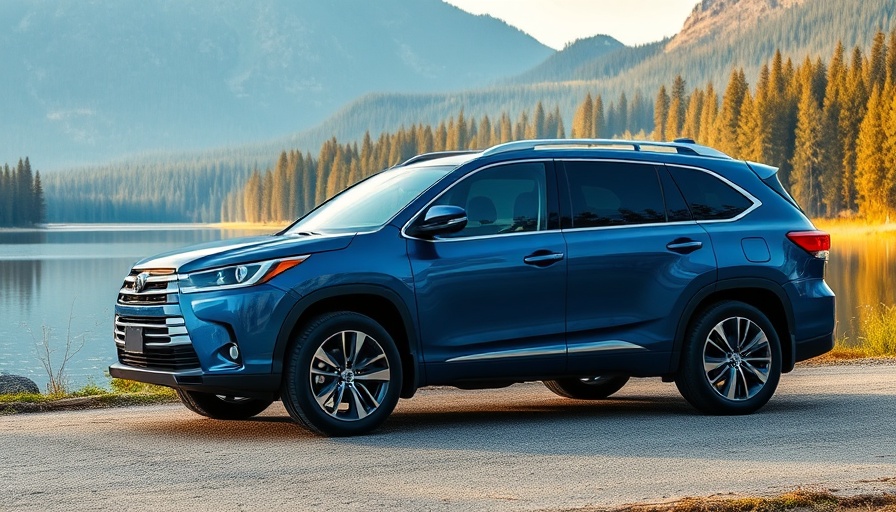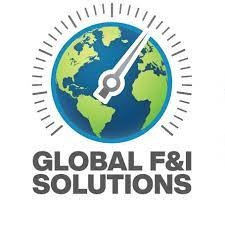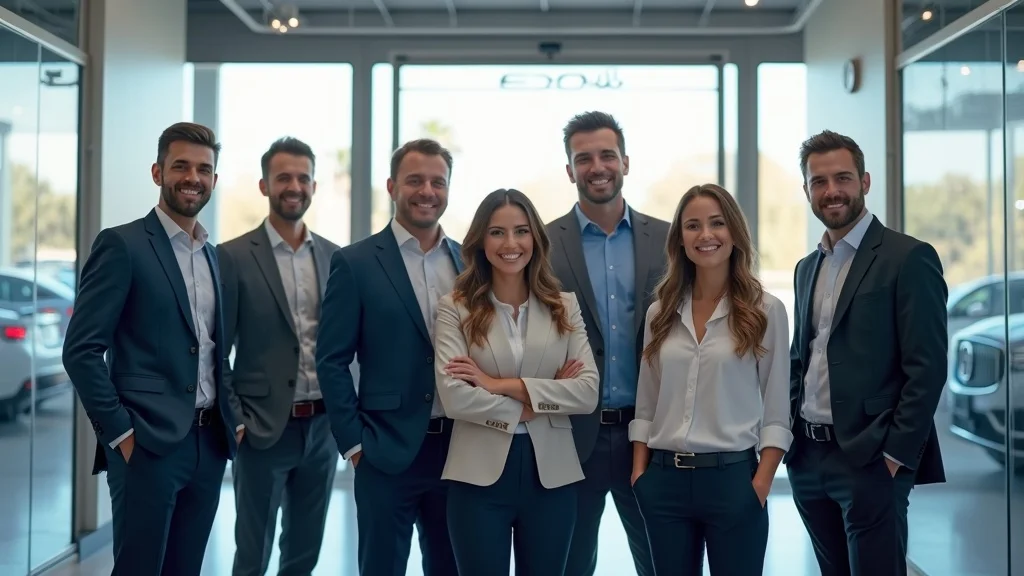Gary Sillman’s Core Insight: Secure Dealership Software Partnerships Drive Seamless F&I Digital Transformation "The biggest misconception is that all dealership software partners are compliant—but most aren’t securing consumer data properly."
– Gary Sillman, Global F & I Solutions In the rapidly evolving world of automotive sales, the push towards digital transformation in Finance and Insurance (F&I) is gathering speed. Still, few dealership leaders realize that a dealership software partnership is not simply a matter of plugging in a new tool or platform—it’s about redefining the dealership’s entire data and operational ecosystem to ensure customer data protection, seamless workflow, and sustainable growth. According to Gary Sillman of Global F & I Solutions, one of the most dangerous misconceptions is the assumption that all dealership software partners are fully compliant and secure. “Too many believe just entering the automotive technology space guarantees best practices,” Sillman states. Yet, the reality is starkly different: many software providers fail to adequately safeguard sensitive consumer data, exposing dealerships to regulatory and reputational risks. Sillman’s perspective isn’t theoretical. Drawing on years of leadership at Global F & I Solutions—where tailored, software-agnostic F&I ecosystems are the norm—he has seen firsthand the consequences for businesses that neglect this foundation. Dealership leaders who are investing in digital growth must anchor that transformation in security, compliance, and true integration. The alternative? Operational inefficiency, legal exposure, and lost customer trust. These are not mere compliance talking points, but existential questions for the modern dealership. The message is as disruptive as it is clear: without carefully chosen, compliant, and integrated software partners, digital F&I transformation will stall or, worse, backfire. The Critical Importance of Choosing the Right Dealership Software Partnership "Customers demand a seamless process—from leads flowing in through marketing to securely working the deal inside protected systems."
– Gary Sillman, Global F & I Solutions The customer journey for purchasing a vehicle in 2026 has shifted dramatically. Today’s buyers expect frictionless transitions from digital lead capture to final signature, and anything less erodes confidence and loyalty. Gary Sillman emphasizes that the right dealership software partnership is the linchpin to meeting these expectations. When a dealership’s workflow—from marketing leads to closed deals—flows through compliant, interconnected software, staff can focus on delivering value instead of wrestling with redundant data entry, system incompatibilities, or data breaches. But too often, poor alignment between lead sources, CRMs, and F&I tools leaves critical gaps exposed. According to Sillman, customers are not just choosing vehicles; they are scrutinizing the efficiency and transparency of every touchpoint. “A truly effective dealership software partner safeguards the customer’s Personally Identifiable Information (PII) and ensures that every aspect of the deal is handled securely within the dealership’s ecosystem,” he says. For leaders seeking to drive F&I digital transformation, this goes beyond ticking a compliance box—it is about creating a competitive advantage in both customer trust and operational agility. Dealerships failing to connect all components of the transaction—from source to system to signature—put themselves at severe risk of data breaches, regulatory penalties, and brand erosion. How Proper Software Integration Protects Customer PII and Streamlines Dealership Operations
Integrating secure software solutions throughout the dealership’s operational stack isn’t just a technical upgrade—it is a paradigm shift. As Sillman’s experience reveals, secure integration means that sensitive customer data—including Social Security numbers, driver’s licenses, and financing details—flows only through encrypted, compliant channels. This stands in contrast to legacy systems or unvetted tools, which too often store or transmit PII in ways that expose the dealership and its clients to unnecessary risk. Sillman has watched enterprising dealers mistakenly assume every tech provider in the market is compliant, only to discover—sometimes through regulatory inquiry or a customer complaint—that their data was inadequately protected. Streamlining operations through robust, integrated software also brings efficiency to every department, from sales to finance. For example, seamlessly connected workflows allow marketing-generated leads to populate the CRM instantly, while the F&I platform validates and processes sensitive information in real time—eliminating manual re-entry and reducing error rates. These efficiencies not only expedite the sales cycle but also allow staff to focus on high-value customer interactions. According to Sillman, dealerships succeeding in the digital age are those that insist on transparency and integration from their software partners, using security and workflow continuity as competitive differentiators instead of afterthoughts. LIST: 3 Essential Criteria for Evaluating Dealership Software Partners Ensure end-to-end secure data handling compliant with regulatory requirements.
Verify seamless integration with your existing CRM and marketing tools.
Confirm the software supports a fully digital and remote F&I process. Real-World Impact: Digital Transformation in F&I During and After COVID-19 "During the COVID crisis, dealers with the right software partners enabled online car purchases with minimal physical interaction, accelerating digital adoption."
– Gary Sillman, Global F & I Solutions The global pandemic was an unexpected catalyst for digital transformation across the automotive industry. According to Gary Sillman, dealerships with strong dealership software partnerships were positioned not just to survive, but to thrive. As social distancing tightened, these dealerships were able to shift most of the F&I process online—including credit application, documentation, and approvals—allowing customers to finalize purchases with minimal onsite contact. Sillman recounts how those already leveraging integrated, compliant systems before COVID saw minimal disruption: “We saw dealers selling, contracting, and delivering cars almost entirely online, then safely orchestrating organized, contactless pickups. ”
The velocity of change proved one thing above all: digital readiness, driven by the right software partners, is now an operational necessity. Dealerships that invested in secure digital F&I platforms with remote capabilities were able to convert pent-up demand into record sales, even as their physical showrooms remained limited. Conversely, those clinging to patchwork solutions missed out on revenue and risked losing customers permanently. In the post-pandemic landscape, the lessons are clear—resilient, connected software partnerships aren’t optional; they define how dealerships compete and win. Case Study: How Secure Digital F&I Solutions Boosted Sales Amid Pandemic Challenges Benefit
Description
Impact Online Purchasing
Allows customers to complete most steps remotely
Increased sales during social distancing Secure Data Storage
Protects sensitive personal information
Compliant with privacy laws Seamless Deal Workflow
Links leads, CRM, and F&I systems
Improved customer and staff experience Key Takeaway: The Imperative of Connected, Compliant Dealership Ecosystems "Connections must happen—from lead sources into CRM in secure databases—to protect customers’ PII and ensure smooth dealership operations."
– Gary Sillman, Global F & I Solutions Gary Sillman’s foremost counsel to industry leaders is unambiguous: the era of standalone, non-integrated systems is over. To build lasting success, every software tool used—from marketing portals to CRM to F&I platforms—must live inside a unified, secure, and compliant digital ecosystem. In Sillman’s view, this isn’t simply best practice—it's the only way forward. By forging deep, authentic dealership software partnerships that prioritize data security, compliance, and real-time synergy, dealers position their operations to weather regulatory shifts and meet escalating customer demands for efficiency and protection. Sillman highlights one universal, often overlooked truth: true digital transformation begins and ends with secure interconnection. If your systems fail to talk—if customer leads, PII, and deal progress aren’t synced and protected within dealership-approved infrastructure—you’re not just missing out on efficiency; you’re actively putting your business at risk. Compliance can no longer be an afterthought or assumption. For dealerships striving to grow, the imperative is to vet every software partner by how they build trust, enable connection, and embed data security at every touchpoint. Avoiding Compliance Risks: Why Your Software Ecosystem Matters More Than Ever
The complexities of today’s legal and data landscapes demand more than surface-level solutions. Sillman makes it clear: compliance is dynamic, not static. New legislation, remote selling mandates, and data privacy requirements are coming online across states at a breakneck pace. Only dealership software partners who are laser-focused on regulatory developments—while supporting seamless workflow—can insulate your business from costly, business-slowing surprises. Sillman’s experience with automotive leaders from across the nation confirms a stark divide: those who choose software-as-a-strategy consistently outperform those patching together disparate apps with no overarching compliance plan. For automotive compliance officers and CRM managers, it pays to recognize that the weakest technology link determines operational risk. According to Sillman, a robust digital ecosystem is one where integrations are more than skin-deep, where secure data passage is assumed at every juncture, and where every partner’s compliance protocols are transparent and verifiable. Leaders adopting this approach have not only outmaneuvered regulatory pitfalls but have earned reputational dividends in the form of customer trust and loyalty, further reinforcing the case for building strategic software alliances from the ground up. FAQ: Addressing Common Misconceptions About Dealership Software Partnerships Are all dealership software partners compliant? No, many are not.
Does digital transformation mean sacrificing security? Absolutely not—security is foundational.
Can online F&I processes enhance customer experience? Yes, when supported by integrated, compliant software. Conclusion: Building Your Dealership’s Future with the Right Software Partner Summary of Strategic Benefits From Gary Sillman’s Expert Perspective Boost customer trust with secure data protection.
Drive efficiency through seamless system integration.
Adapt quickly to digital and regulatory shifts in automotive F&I. Next Step: Connect with Industry-leading Expert Gary Sillman for Tailored Solutions
The path to dealership growth and resilience is clear: prioritize a dealership software partnership that stakes its reputation on compliance, security, and seamless integration. According to Gary Sillman, the dealerships thriving today are those leaving behind assumptions, rigorously vetting every vendor, and demanding more—from themselves, their partners, and their technology stack. It’s time to evaluate where your systems stand, identify gaps, and take action to fortify your dealership’s digital ecosystem. To unlock your dealership’s full digital potential, connect with Gary Sillman and the Global F & I Solutions team today—where expert guidance and truly integrated solutions meet the modern demands of secure, streamlined, and growth-driving F&I operations.

 Add Row
Add Row  Add
Add 




Write A Comment